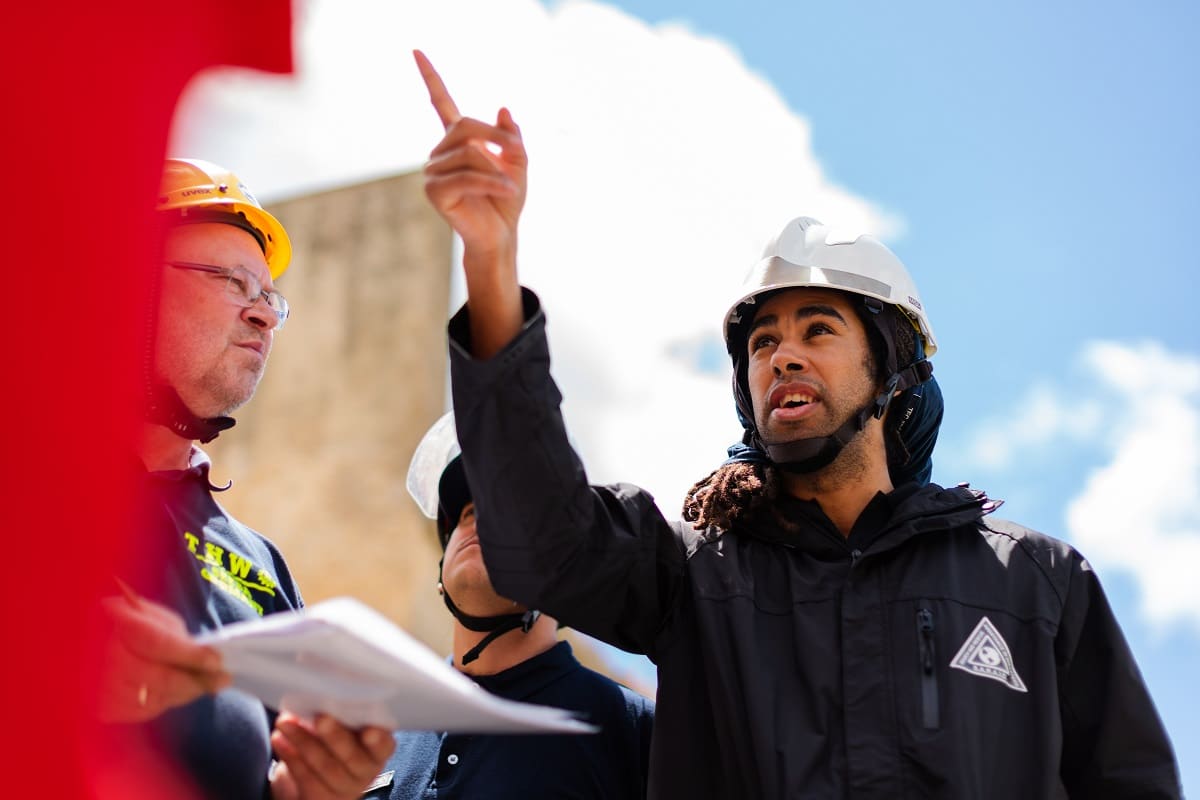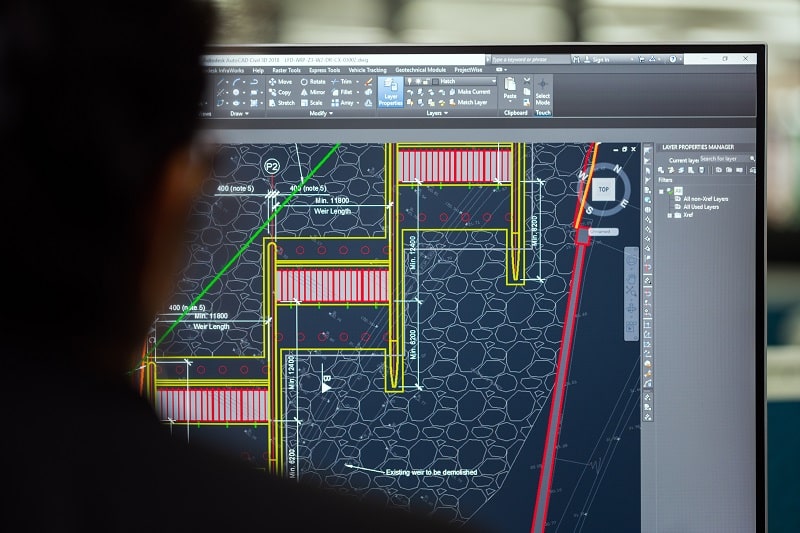
How to Study and Ace the FE Civil Engineering Exam
If you are finishing or have just finished your engineering degree, you are probably focusing on how to get an engineering job to use your skills. However, there is one last challenge you have to take before you can secure that job.
And that, of course, is the FE Civil Engineering Exam, an exam that NCEES, the National Council of Examiners for Engineering and Surveying, administers to all aspiring engineers.
Previously known as EIT Exams (Engineer in Training), the tests are administered to ensure you meet the standards required by the body before you begin to practice professionally.
Bear in mind that your university degree has given you the information and skills you need for civil engineering. The FE Civil Practice exam gives you the license you need to use your skills.
Table of Contents
What Is the FE Civil Practice Exam?
The FE (Fundamentals of Engineering), as the exam is now called, is an intensive six-hour exam. Passing it will see you awarded with a license to practice as an engineer in the US.
The exam will pose questions on material you already studied for your undergraduate degree and will also ask questions on topics you may not have covered in college, for example, the economics of engineering.
You might ask why it should be necessary to undertake another exam having completed your undergraduate training, but the exam is a recognition of the high level of responsibility that goes with a civil engineering job.
The NCEES see it as their responsibility to ensure that the people they trust with building roadways and bridges are capable of carrying out that work to the safety and ethical standards demanded by the industry.
They will also need to see how capable you are of costing a project, dealing with the required documentation, and even if you are aware of your public liability responsibilities,
What Are the Sections in the Test?
Engineering Economics
Engineering Economics will probably strike you as the topic you will have to start working on from the very beginning. You may not have studied the topic prior to this, but it is one that the professional engineer is called upon to deal with on virtually every project.
Expect questions on the current and future monetary value of a project, the cost of a project, analyses of a project i.e. what benefits does it deliver, what is its life cycle, sustainability, renewable energy, if there is uncertainty around the project in terms of cost, etc.
You will have 4-8 questions to answer in this section.
Ethics And Professional Practice
Ethics and Professional Practice is another one that is a little bit different to the standard engineering questions but in the eyes of the examining body is equally important.
You will have 4-6 questions to answer here with an emphasis on public safety in the projects you are likely to be working on when licensed.
You will also be quizzed on professional liability, the Code of Ethics, your familiarity with technical and professional societies, and sustainability. Licensure, Contracts, and Contract Law.
Engineering Topics
Naturally, you can expect questions on subjects directly related to topics you have covered in college. Statics, dynamics, fluid mechanics, construction, mathematics, geotechnical engineering, and environmental engineering all form part of the list.
Looking at the list, it is easy to dismiss it as something you know already. Don’t allow yourself to fall into that trap!
Very often, subjects we have studied in depth are the ones we tend to do badly in when it comes to examinations. We grow stale, become careless and even forget the material.
Test yourself with the following question and decide if you still remember the material your lecturers taught you. The solution is given but try covering it while you work on the question!
Now for good measure try the following question, again covering the solution before you begin!
What Is the Format of the Exam?
- The exam is a CBT (Computer Based Test) and is a closed book exam.
- The exam is timed to run over six hours, but in reality, you will be working for 5 hours and 20 minutes once breaks have been deducted.
In that time, you will have to answer 110 questions spanning 18 sections. You are allowed to use a calculator but check with the examining body which type you may use. Only three types of calculator are currently allowed.
The results given are simply a pass or fail.
You need to prepare to complete the test in the limited time available. Five hours and twenty minutes may appear long in terms of test time but doing 110 questions, working from section to section, and doing all the necessary calculations in that length of time poses its own challenges.
Another challenge for the newly qualified engineer is the different emphasis to college exams, which focus on how much you know about/how good you are at engineering.
In the FE Civil Practice Exam, the emphasis is on how well you are able to perform as a professional engineer dealing with constructing structures for public use.
For example, in the Construction Engineering section of the test, you will be asked not alone about the construction of a public highway or perhaps a bridge.
You will also be asked about Project Administration and how you will deliver the project, what documents are necessary etc.
Working on sample papers will give you a better understanding of the types of questions that are asked in the test, something that will be especially useful when dealing with topics that may be new to you.
Is the FE Civil Engineering Exam Hard?
With the exception of the module, Economics of Engineering, there is very little in the exam that will be new to you. However, the closer you take the exam to graduation, the easier you will find it. Your course material will still be fresh in your head. Studying for your final exams should ensure you have a solid base to work from.
However, this is a different type of exam. You will be expected to work over a range of areas in the time allowed. Coming from a college system where each topic has its own specific examination, this will need some adjusting to.
You may also encounter a different style of questioning in some of the topics. And don’t forget that we all tend to forget things pretty quickly when our courses finish.
But with solid preparation, you will be able to ace the exam, meaning you can say goodbye to the world of academia and move on to making your mark in the real world of engineering.
How Do I Prepare for the Exam?
In college, you have lecturers and tutors whose job is to prepare you for examinations.
No such luxury exists in the world of professional examinations meaning you have to search for resources yourself.
However, some companies have courses available to help applicants prepare for professional and pre-employment testing. We recommend you use Job Test Prep, where you will find a course prepared specifically for the FE Civil Engineering Exam.
With thirty years of experience in providing courses for job applicants, they will provide you with a test prep pack containing:
- All the information you need about the format of the exam
- Helpful videos and study guides
- Sample exam papers modeled on the real exams
- A useful scoring system where you can monitor your progress as you work through the sample papers.
Further along in this article, you will find questions taken from sample papers.
Study Tips for the FE Civil Engineering Exam
If you have just finished your degree, the thought of returning to more study may not be very enchanting.
However, preparing for this exam in a focused way will put you in a position to get gainful employment. Make use of the knowledge you have acquired during your years in college.
To ensure your preparation is focused on the exam ahead, use your sample papers in every preparation session. This will ensure:
- You are focusing on the precise exam in all of your preparation
- You become familiar with the questioning style
- You train yourself to work within the time limitations of the test
- You are revising material you have worked on already but in the best possible way by applying that material to examination questions.
You can monitor your progress by checking your scores on every test you take. Any errors you make or any material you have forgotten will become obvious quickly, giving you time to deal with it.
Doing the Test
When it comes to doing the exam, don’t allow your familiarity with taking exams to lull you into a false sense of security.
This, as your sample papers will have shown you, will be different from your college exams. You are now doing a professional exam, one that will ensure you can capitalize on your hard years of study at college.
But with the confidence that comes with having done the work, you can go in there and give it your best shot!
If you have an FE Civil Practice exam in the offing, you will find all the resources you need to ace the examination here.
Written by Elizabeth O Mahony
With 25+ years’ experience as a teacher and state examinations corrector, Elizabeth now writes for the education and careers industry. Her experience preparing students for examinations and running an academy for supplementary education give her invaluable insights into what it takes for job seekers and graduates to succeed in assessments.
Sarah is an accomplished educator, researcher and author in the field of testing and assessment. She has worked with various educational institutions and organisations to develop innovative evaluation methods and enhance student learning. Sarah has published numerous articles and books on assessment and learning. Her passion for promoting equity and fairness in the education system fuels her commitment to sharing insights and best practices with educators and policymakers around the world.








